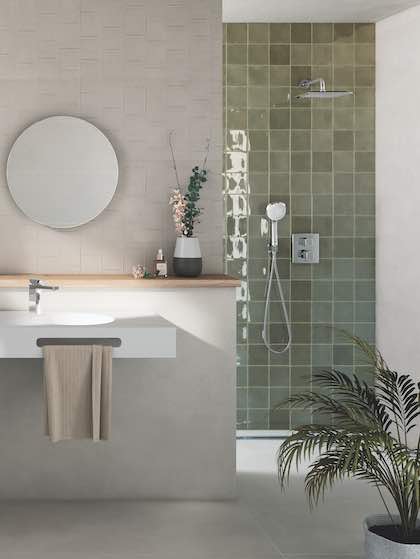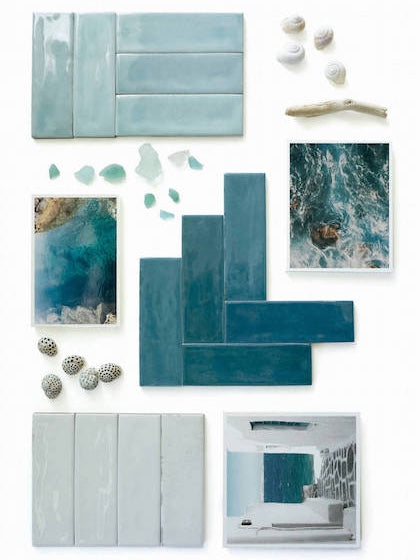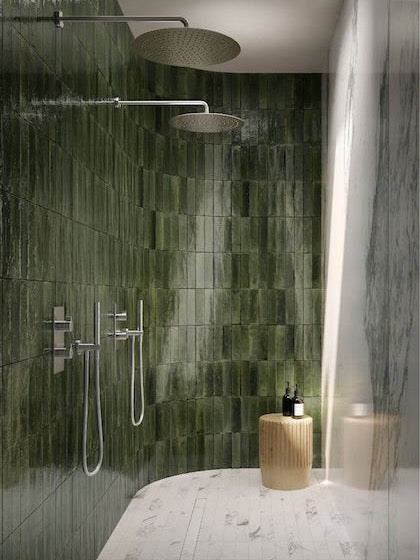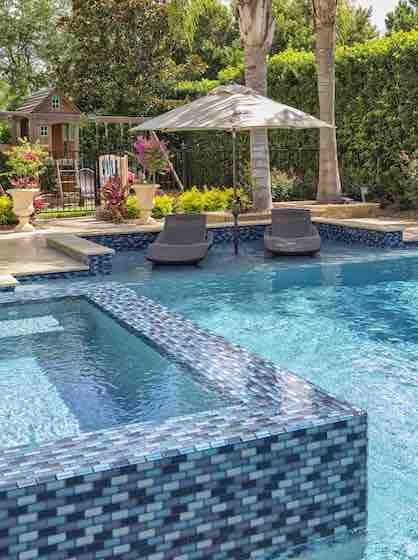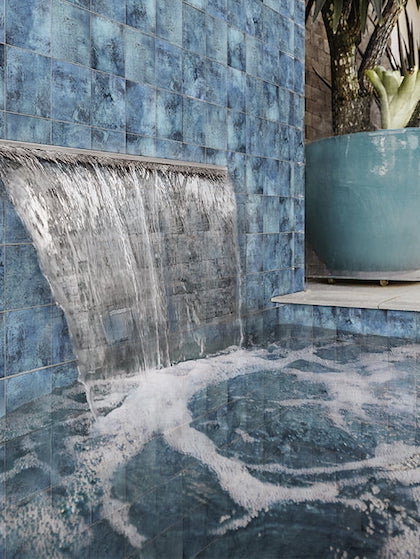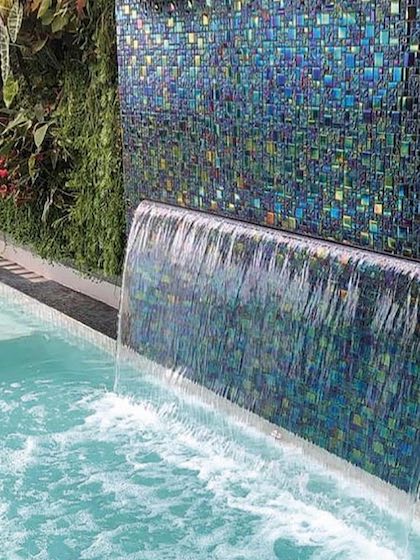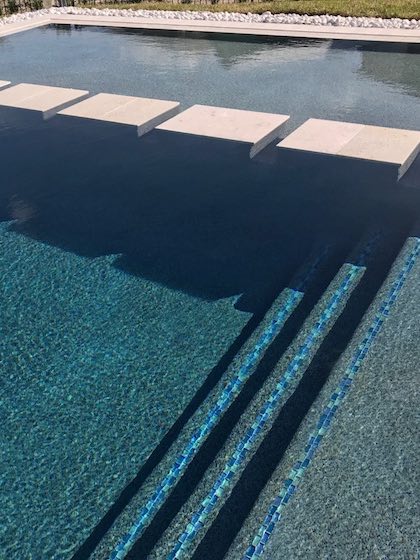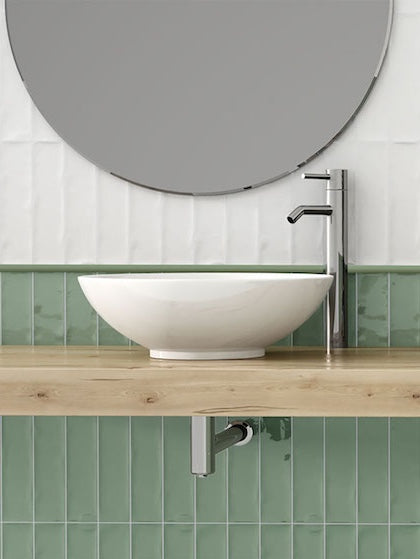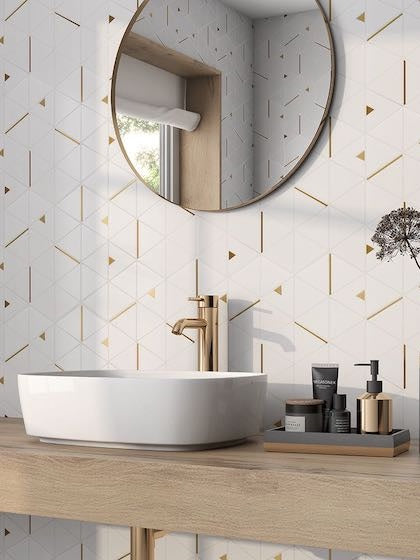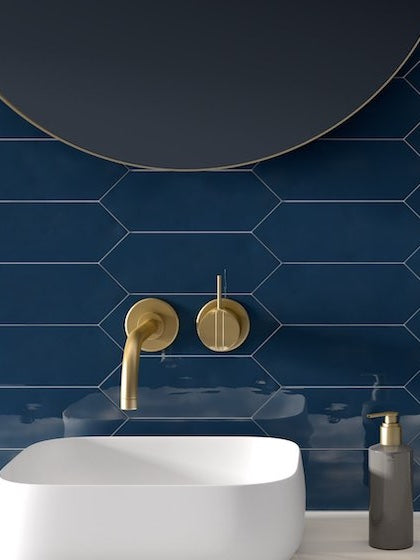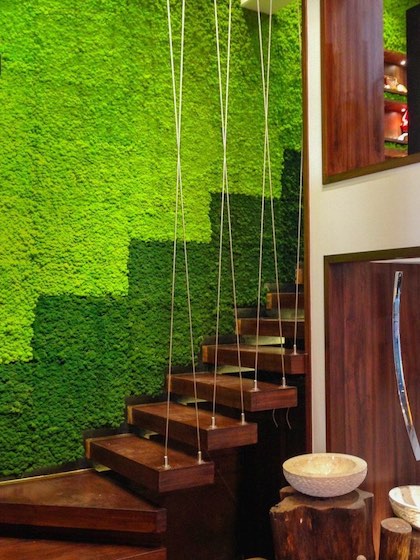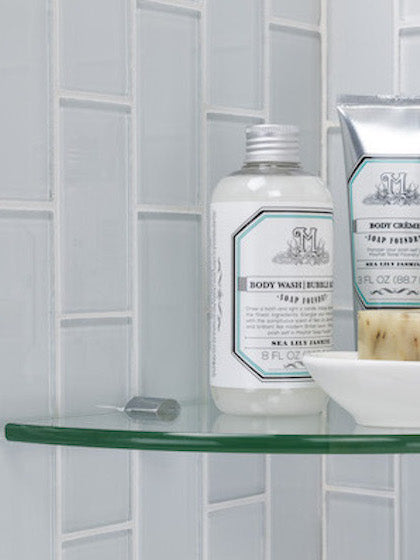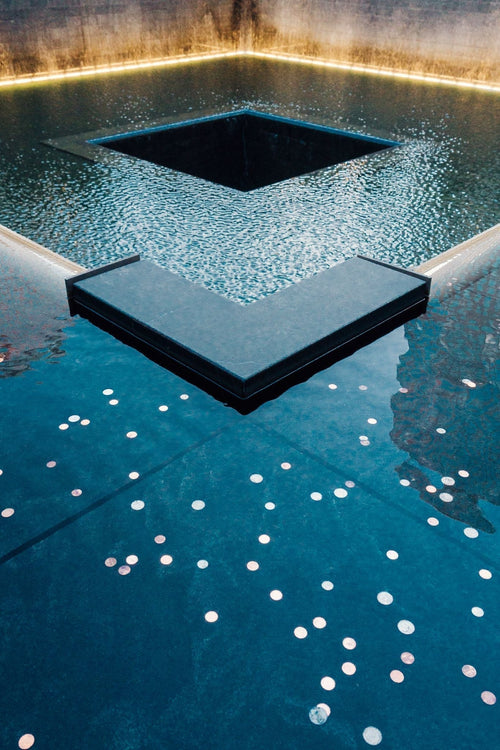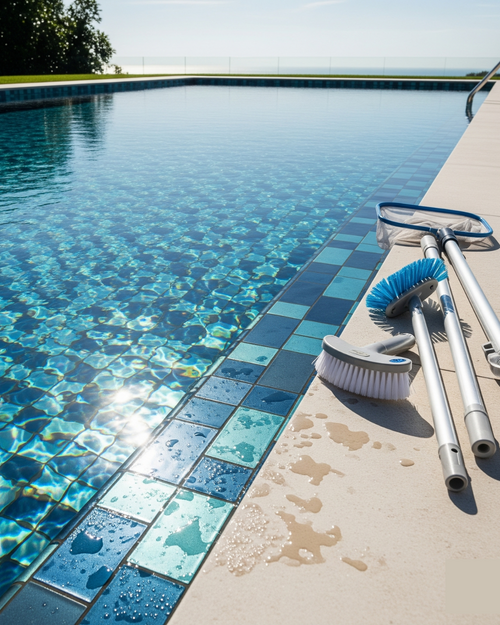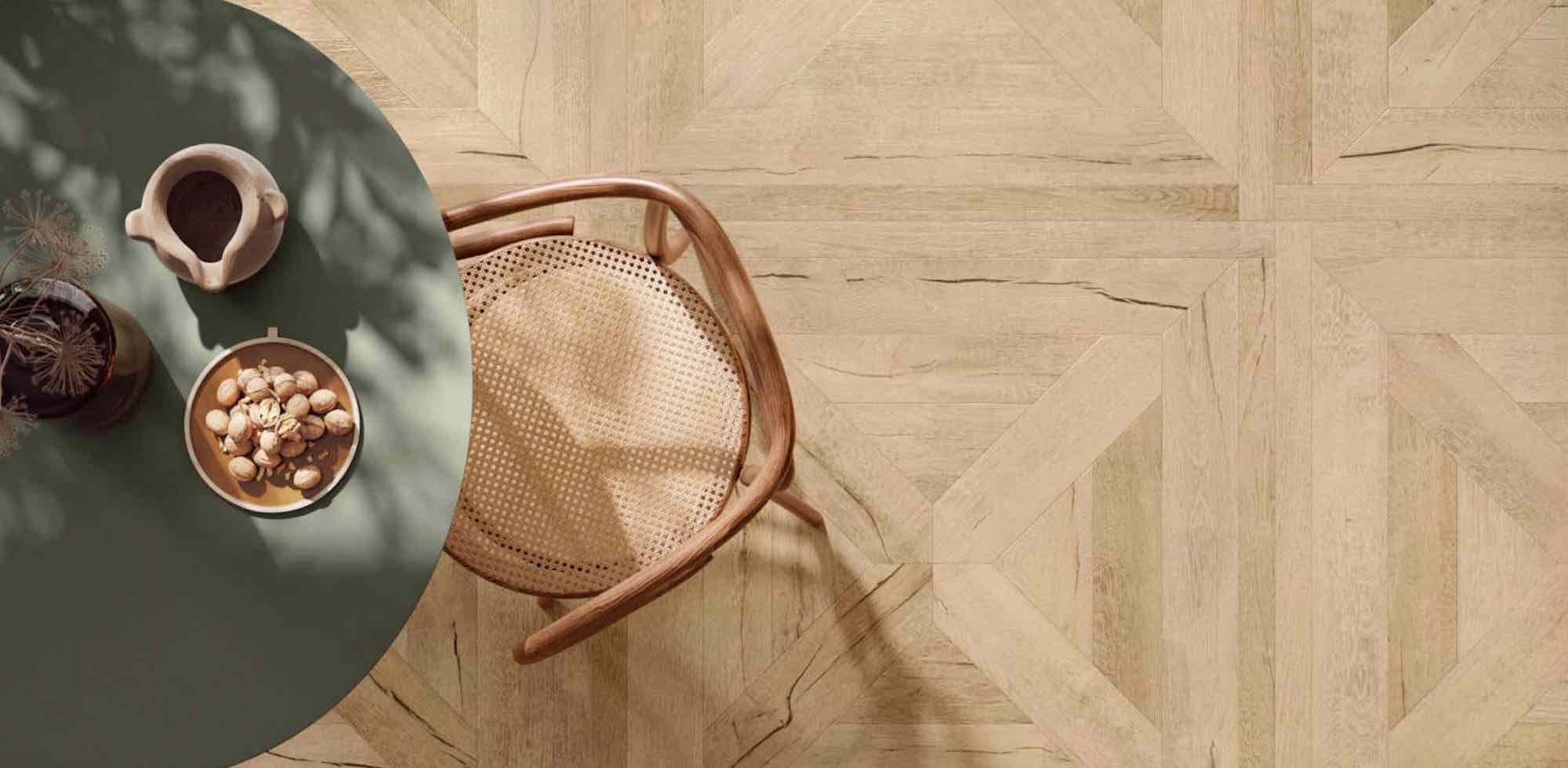Key Highlights
- Porcelain pool tiles offer decades-long durability, easy maintenance, and cost-efficient installation—making them the most practical choice for full pool surfacing.
- Glass pool tiles provide unmatched sparkle, vibrant colors, and resilience but come with higher costs and specialized installation requirements.
- For the best results, many homeowners combine porcelain for strength and glass for decorative accents, balancing durability with elegance.
Why Swimming Pool Tiles Matter
Swimming pool tiles play a critical role in both performance and design, making them far more than a surface finish. The right pool tile material protects your pool structure from constant water exposure, chemicals, UV rays, and temperature changes while ensuring long-term durability and safety.
Well-chosen swimming pool tiles improve slip resistance, minimize algae and bacteria growth, and simplify ongoing maintenance. From a design perspective, tiles define the pool’s overall aesthetic—porcelain tiles deliver strength and timeless appeal, while glass pool tiles add depth, brilliance, and luxury through light reflection. Whether used on pool floors, walls, or waterlines, selecting the proper pool tiles ensures a safer swimming environment, cleaner waterlines, and a visually striking pool that maintains its value over time.
15 Contemporary Swimming Pool Tile Ideas
Porcelain Pool Tiles: Engineered for Endurance

Durability & Lifespan
Porcelain tiles are made from dense kaolin clay, fired at very high temperatures—resulting in a material with extremely low water absorption (often less than 0.5%) and exceptional durability. Their vitrified structure ensures resistance to stains, chemicals, freezing, and cracking.
Maintenance
Porcelain’s non-porous surface makes it easy to clean and resistant to bacteria—ideal for pools. It stays looking fresh with minimal effort.
Installation & Cost
Being dense and heavy, porcelain demands professional installation with special tools, making labor costlier. Material pricing is moderate—often $15–35 per square foot, inclusive of installation.
Aesthetic & Safety
Porcelain comes in a huge variety of finishes—stone, wood, or solid colors—and anti-slip textures are available for safety around pool decks. Explore our guide on 17 Porcelain Bathroom Tile Ideas for a Trendy Makeover to see real-life styling possibilities.
Explore our Porcelain Pool Tiles to find the perfect match for your pool. Tiles
Glass Pool Tiles: Sparkling Beauty with Resilience

Durability & Lifespan
Glass tiles are 100% non-porous, resistant to fading, staining, chemicals, UV rays, and bacterial growth when properly installed. Some sources note that high-quality glass tiles can last up to 20 years or more with proper care. Another suggests that expert installation can make them “the most durable pool finish available”.
Maintenance
With a smooth, sealed surface, glass tiles are easy to wipe clean. However, grout lines may need epoxy grout to prevent mold and ensure long-term performance.
Installation & Cost
Glass tile installation is more complex and requires skilled labor and special adhesives. Cost tends to be higher—approximately $35–65 per square foot with installation.
Aesthetic & Visual Impact
Glass tiles offer unmatched, light-reflective sparkle, translucence, and vibrant color depth—making them perfect for waterlines and decorative accents. You can also explore Properly Installing Glass Mosaic Tiles in Swimming Pools to ensure lasting brilliance. However, glass surfaces can be slippery unless matte or small mosaics are used.
Explore our Glass Pool Tiles to find the perfect match for your pool.
Side-by-Side Comparison
| Aspect | Porcelain Pool Tiles | Glass Pool Tiles |
|---|---|---|
| Durability & Lifespan | Very high with proper installation; decades-long durability | High—potentially 10–20 years; very durable when installed correctly |
| Maintenance | Easy—resists staining & bacteria | Very easy—non-porous, but grout may need epoxy |
| Installation | Demands heavy-duty tools, professional labor | Complex installation, needs skilled labor and adhesives |
| Cost | Moderate—affordable per sqft; moderate labor cost | Higher—luxury material plus installation |
| Aesthetics & Slip | Versatile styles; anti-slip options available | Stunning visual depth; may be slippery—use small mosaic or matte options |
Best Pool Tile Choice by Use Case
Best Tiles for Pool Floors
Porcelain tiles are the clear winner due to their slip resistance and strength.
Best Tiles for Pool Waterlines
Glass tiles excel at waterlines, offering brilliant color and easy cleaning.
Best Tiles for Saltwater Pools
Porcelain pool tiles outperform glass in saltwater environments thanks to their chemical resistance.
Best Tiles for Luxury Pools
Glass mosaic pool tiles deliver unmatched elegance and visual drama.
Can Porcelain and Glass Pool Tiles Be Used Together?
Yes. Many designers combine porcelain tiles for pool floors and walls with glass tiles at the waterline or feature areas. This hybrid approach balances durability with visual impact and is one of today’s top pool design trends.
Conclusion
For unmatched durability and long-term value, porcelain pool tiles are the safest bet. However, if you crave luxurious aesthetics and light-reflective beauty, glass pool tiles shine brightest—especially when used strategically in key areas. Using both in tandem offers the best of both worlds: strength where it matters and sparkle where it shows.

